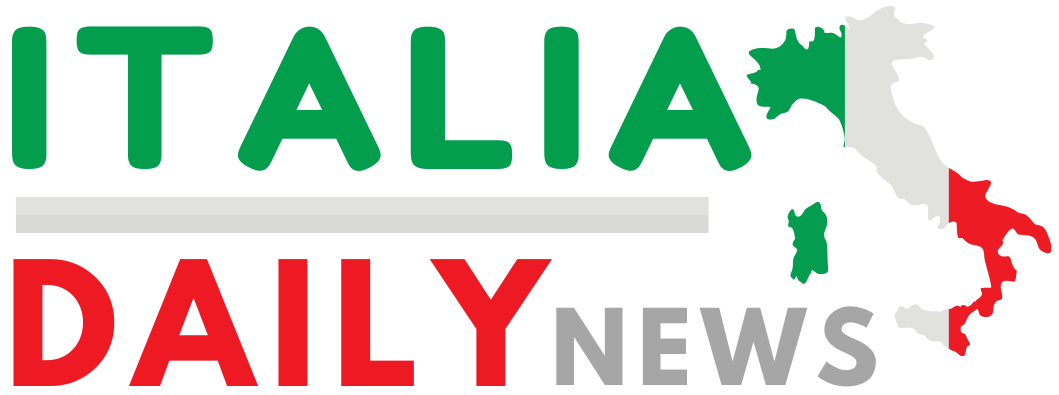A decade after its landmark deal, Europe faces a defining test in Iran
Having helped forge the Iran nuclear deal, the bloc must decide if it will once again take the diplomatic lead or be swayed by the illusion that might makes right.
Sahil V. Shah is a senior policy advisor at the European Leadership Network and the Institute for Security and Technology. Nathalie Tocci is director of the Istituto Affari Internazionali and professor of practice at Johns Hopkins University’s SAIS Europe.
Europe’s leaders are meeting with their Iranian counterparts for nuclear talks in Istanbul today.
But with recent Israeli and U.S. military strikes against the country jolting the Middle East into fresh uncertainty and undermining international law, the survival of one of the few diplomatic initiatives to ever successfully constrain a nuclear program without war is now under threat.
As the architect and guardian of the landmark 2015 Joint Comprehensive Plan of Action (JCPOA), Europe faces a critical choice: Reassert its role as an honest broker of multilateral diplomacy aimed at nuclear non-proliferation, or follow Israel’s U.S.-backed military revisionism and sleepwalk into a confrontation that will only further fracture global security.
The current moment carries great significance, as last week marked a decade since the 2015 deal — a breakthrough agreement that was built under European leadership and remains the most comprehensive non-proliferation accord ever negotiated.
The JCPOA proved that when approached with persistence, unity and respect for international law, diplomacy can succeed. And if Western governments are serious about preventing Iran from acquiring nuclear weapons, this time around, they must offer more than coercion. They must offer a diplomatic solution that defuses short-term tensions and lays the groundwork for lasting stability.
And though we’re in a period marked by the lowest levels of trust in relations between Iran and the West, this moment may paradoxically offer a unique yet narrow opening for such a deal.
It is no secret that Israel’s attack, eventually backed by the U.S., occurred just as indirect discussions between the Washington and Tehran were reaching a new stage under Omani mediation. Unlike the JCPOA negotiations, no other nations — including European powers — were involved. Then, rather than give diplomacy a chance to deepen and expand, Israel took matters into its own hands right before negotiations were due to resume.
Though this clearly undermined Washington’s diplomatic efforts, the U.S. administration ended up following Israel’s military lead. Even several responses from Europe’s leaders disappointingly signaled approval, invoking Israel’s right to self-defense, calling it useful “dirty work” in a bid to “end” Iran’s nuclear program.
But Europe cannot look away from history. Israel’s decision follows a deeply troubling pattern of using ineffective military force to stall nuclear development regardless of international law or ongoing diplomacy. Israel’s 1981 strike on Iraq’s Osirak reactor, for example, didn’t eliminate the country’s nuclear ambitions. It spurred Saddam Hussein to double down in secret, ultimately drawing the region and the West into decades of instability and war.
The parallels with today are stark, with escalating sabotage, sanctions and strikes likely to usher in a permanent “cat-and-mouse” game around Tehran’s nuclear program that risks spiraling out of control. And alarmingly, the marked difference between now and then is that the U.N. Security Council’s (UNSC) unanimous condemnation of Israel in 1981 hasn’t been replicated in the wake of the recent bombings.

Military strikes on Iran’s nuclear energy facilities under international safeguards, military sites and residential areas, including efforts to assassinate officials, are illegal under the U.N. Charter and international law. The charter prohibits the use of force, except in cases of self-defense in light of an attack or with UNSC authorization.
These provisions were put in place for a reason — to ensure that diplomacy is the first resort, not preventive war. The EU has always championed this approach. And abandoning it now, swayed by Israel’s illusion of asserting itself as a regional hegemon, will only fuel further escalation and undermine the international norms that protect us all.
The international legal order is unraveling in real time. And if not reversed, it risks normalizing a world where power overrides principle and weakens the West’s ability to credibly challenge other aggressors, starting with Russia in its continued assault on Ukraine.
Meanwhile, European governments are busy brandishing the threat of triggering the JCPOA’s “snapback” mechanism to reimpose UNSC sanctions on Iran — a grave and short-sighted mistake. This mechanism was embedded in a deal that’s now effectively defunct, and one that never gave Iran a reciprocal right to challenge Western noncompliance.
Lest we forget, Iran upheld its end of the JCPOA for more than a year after the U.S. unilaterally tore it up in 2018 and reimposed sweeping sanctions. And Tehran’s later steps to reduce compliance were to build leverage after remaining partners — namely Europe — couldn’t deliver any economic benefits, and the country’s facilities and scientists were targeted by sabotage attacks and assassinations.
Europe’s credibility as a diplomatic actor is on the line here. Today’s snapback threats feel more performative than strategic — an exercise in legal brinkmanship, aimed at maintaining relevance and projecting leverage rather than actually advancing diplomacy. And wielding the mechanism now, after previously blocking Washington from misusing it, would send a dangerous signal: that legal instruments are political weapons to be used selectively, and that agreements are binding only on one side.
Even worse, a focus on this mechanism generates arbitrary deadlines that could play into Iran’s hands, lowering the bar for progress by potentially allowing Tehran to slow walk cooperation with U.N. inspectors. It is worth mentioning Iran has agreed to host a delegation of technical experts from the International Atomic Energy Agency (IAEA) in Tehran within the next few weeks to discuss a possible new inspections modality. And while, on its face, this may seem like a positive diplomatic breakthrough, unless Europe incentivizes Iran to provide clarity on timelines and substance, it risks mistaking process for progress.
Until very recently, the IAEA was still inspecting Tehran’s nuclear program — a staggering 493 inspections in 2024, with the same pace continuing until the military strikes this year. However, the agency withdrew its inspectors shortly after Iran’s parliament required all future access requests be routed through its Supreme National Security Council.
The idea that Iran’s nuclear program can be annihilated by force deserves closer scrutiny as well. While some physical infrastructure may take time to rebuild, the country’s stockpile of 60-percent highly enriched uranium reportedly remains intact and accessible. And the lack of international oversight means we have no verifiable information on the material’s status or location.
The net result of militarism here has been reduced visibility and trust— the predictable consequence of undermining international law. Now, without credible assurances against further military operations, Iran is unlikely to allow inspectors back in, or to participate seriously in any diplomatic process. Yet, unless the inspections resume, the world won’t know the true status of its nuclear program — the baseline for any future agreement.
So, Europe has to urgently decide if it will continue following a coercive path or finally reclaim its diplomatic leadership.
And if it chooses the path of diplomacy, its governments — particularly the U.K., France and Germany (the E3) — need to champion a phased approach that stabilizes the current ceasefire by providing Iran with security guarantees during negotiations; reestablishes the U.N.’s baseline knowledge of Iran’s nuclear program; and buys time for more substantive negotiations on a long-term diplomatic package.

Such an approach could potentially surpass what was achieved ten years ago, exchanging transparency and more long-term restrictions on Iran’s nuclear stockpiles, capabilities, research and development, and manufacturing for deeper sanctions relief. It could also lay the groundwork for a regional enrichment consortium that Iran’s nuclear program could directly feed into to build more interdependence under international oversight.
The road ahead is uphill — not least because of Washington’s original violation of the 2015 deal and more recent military escalation. And while there’s currently no great power consensus like there was a decade ago, it’s important to remember that amid the transatlantic fracture caused by the Iraq war, there wasn’t one in the early 2000s, when Europe first began its work either.
With diplomatic relations hanging by a thread and the risk of war lingering, Europe’s renewed role must be anchored in a rejection of militarism and animated by creative, practical solutions that all sides can accept. Only by summoning such courage, vision and initiative can Europe claw back some of its lost credibility.











